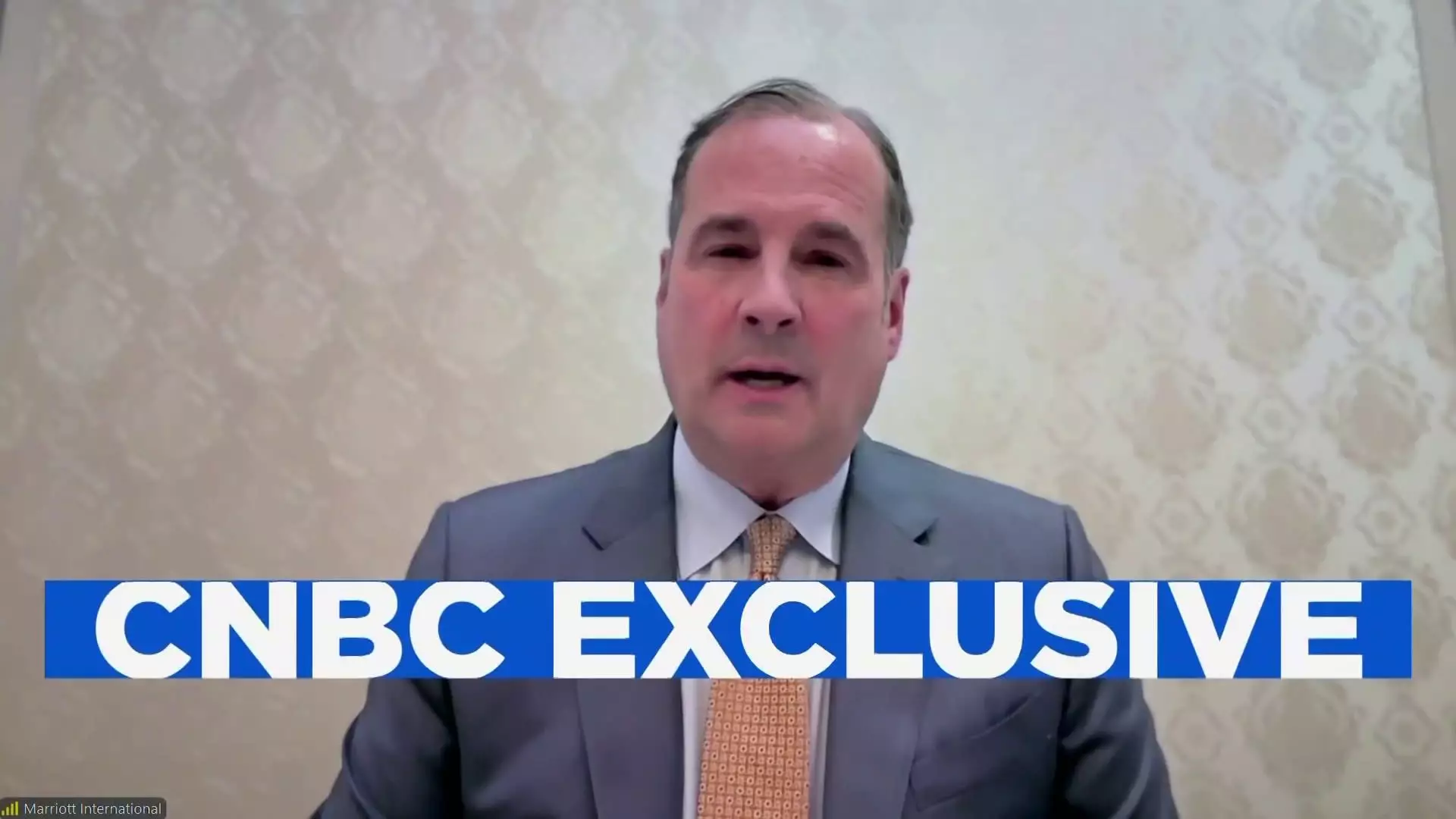The global hospitality landscape is continually evolving, and at the forefront of this industry is Marriott International. Despite facing unique challenges, such as corporate layoffs and a downturn in China’s tourism sector, CEO Anthony Capuano recently asserted the brand’s resilience during an interview with CNBC. As he highlighted the company’s robust performance, one cannot help but explore the subtleties and implications of Marriott’s current position within the global market.
Marriott’s recent financial disclosures revealed a modest 3% uptick in revenue per available room (RevPAR) globally, counterbalanced by an 8% decrease in the China market. This divergence underscores the complexities of the recovery journey, especially in regions still grappling with post-pandemic realities. China, recognized as Marriott’s second-largest market, has introduced hurdles resulting in significant staff reductions, including layoffs affecting over 800 employees at its corporate level. While layoffs often signal financial woes, Capuano insists that these job cuts are strategic moves aimed at enhancing the company’s operational model rather than indicative of a company in decline.
The operational restructuring hints at a pivot towards decentralization—shifting decision-making processes closer to regional markets. This endeavor is designed to improve responsiveness and agility amid varying market demands. By empowering local management, the company hopes to adapt more nimbly to opportunities and challenges on the ground.
Despite current challenges in China’s tourism market, Capuano remains optimistic about the long-term potential. He pointed to a recent surge in hotel signings in early 2024, boasting that Marriott signed more agreements in the first half of the year than in any similar timeframe in the company’s history. Such optimistic developments may suggest a recalibrated focus among public and private real estate investors in China, which could bode well for the hospitality sector’s future.
Moreover, Capuano noted a resurgence in domestic tourism within China, indicating that this segment is recovering gradually. Interestingly, inbound travel has reportedly surpassed pre-pandemic benchmarks, with the share of room nights from cross-border travel increasing. Such positive trends may signify an upswing in international travel as airline capacities are restored across the region.
A noteworthy highlight in Marriott’s operational performance is the resurgence of group travel. Capuano lauded this segment as the “bright, shining star,” reflecting the hospitality industry’s potential for robust growth. With an impressive 6% net room growth year-on-year and a 2.5% increase in room rates largely driven by group bookings, Marriott appears poised to capitalize on evolving consumer preferences for collaborative travel experiences.
The company has also demonstrated success in loyalty program engagement; with the Bonvoy loyalty program surpassing 219 million members, indicating sustained consumer interest. Partnerships with companies like Uber and Starbucks are enhancing consumer experiences and contributing to member growth.
Marriott’s strategic recalibration extends into financial management as well. The anticipated cost-saving measures, which could reduce annual expenses by $80 to $90 million, aim not only at bolstering financial health but also at fostering innovation in corporate operations. Nevertheless, Capuano emphasized that these changes are not merely about cost-cutting; rather, they are instrumental in fortifying the company’s capabilities in a landscape that demands agility and responsiveness.
Marriott International is navigating complex market dynamics marked by both challenges and opportunities. While layoffs and regional sluggishness present obstacles, the company’s strategic shifts, optimistic projections for the Chinese market, and a resounding revival of group travel signal a commitment to long-term growth and innovation. As the hospitality industry continues to rebound, Marriott seems determined to remain at the helm, leveraging its expansive reach and adaptability to thrive in this new era of travel.


Leave a Reply